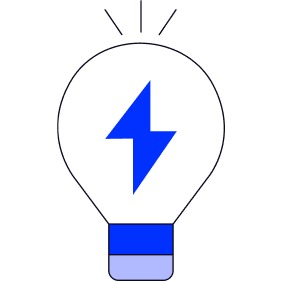
Gegevenstoegankelijkheid
Maakt het eenvoudig om documentgebaseerde informatie op te halen en te gebruiken.

Intelligente Documentverwerking is een essentieel onderdeel van informatiemanagement dat het vastleggen, extraheren, valideren en integreren van gegevens uit verschillende soorten documenten omvat om workflows te stroomlijnen en informatie toegankelijk en bruikbaar te maken. Het combineert technieken uit beeldverwerking, Optical Character Recognition (OCR), natuurlijke taalverwerking (NLP) en machine learning om ongestructureerde gegevens om te zetten in gestructureerde formaten. Bijvoorbeeld, in een scenario van factuurverwerking zou een documentverwerkingssysteem de factuurafbeelding vastleggen, belangrijke details zoals factuurnummer, datum en bedrag extraheren, deze informatie valideren tegen een database en het vervolgens integreren in een systeem voor crediteurenbeheer.
Documentverwerking biedt talloze voordelen door informatie te digitaliseren en te organiseren voor verbeterde toegankelijkheid en efficiëntie.


Maakt het eenvoudig om documentgebaseerde informatie op te halen en te gebruiken.

Stroomlijnt workflows door handmatige documentverwerking te automatiseren.

Verlaagt operationele kosten door handmatig werk te minimaliseren.

Verhoogt de datanauwkeurigheid door menselijke fouten te elimineren.

Vermindert de behoefte aan fysieke opslag door digitalisatie.

Beschermt gevoelige informatie door gecontroleerde digitale toegang.












Documentverwerking speelt een cruciale rol in diverse industrieën en werkplekken door informatiemanagement te stroomlijnen en operationele efficiëntie te verbeteren. In vastgoedbeheer faciliteert het de afhandeling van huurcontracten, eigendomsdocumentatie en communicatie met huurders. Belastingadministraties profiteren van documentverwerking door het automatiseren van belastingaangiftes, gegevensextractie en nalevingscontroles. In de horecasector vereenvoudigt documentverwerking gastregistratie, factuurbeheer en administratieve taken. Daarnaast wordt documentverwerking toegepast in de gezondheidszorg voor het beheren van patiëntendossiers, in juridische diensten voor documentanalyse en contractbeheer, en in financiële instellingen voor het verwerken van leningaanvragen en accountdocumentatie. De veelzijdigheid ervan maakt het onmisbaar voor efficiënt informatiemanagement in verschillende sectoren.
















Robotic Process Automation (RPA) greatly benefits from advancements in Artificial Intelligence (AI). While RPA is excellent at following rules-based processes, AI provides the capability for RPA bots to learn, adapt, and make decisions, enhancing their functionality. AI-powered cognitive capabilities like Natural Language Processing (NLP), Machine Learning (ML), and Computer Vision enable bots to understand and respond to text or voice commands, learn from historical data, and recognize images, respectively. For instance, in customer service, AI-powered RPA can analyze customer sentiments in real-time, allowing bots to handle customer complaints and queries more effectively, delivering personalized responses and improving overall customer experience.
